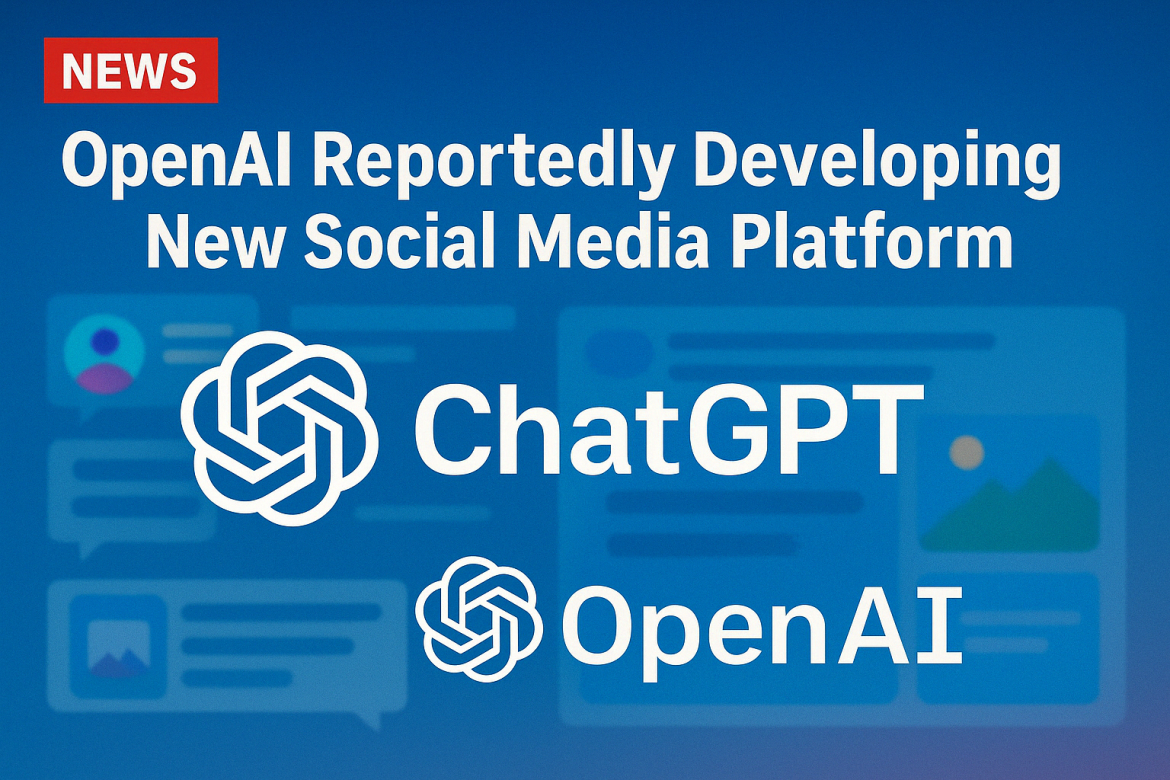OpenAI, the company behind ChatGPT and a wave of transformative artificial intelligence tools, is now reportedly preparing to enter the social media landscape. According to a report from The Verge, OpenAI is in the early stages of building a new social networking platform that would center around generative AI, particularly its advanced image creation technology.
Though details remain sparse, early indications suggest that the platform could be either a standalone app or integrated as a feature within the ChatGPT ecosystem. The concept is expected to blend social interaction with OpenAI’s creative tools, allowing users to generate, share, and engage with AI-generated images in real time. The project reflects a growing trend among tech companies to fuse generative AI with community-driven experiences and user-generated content.
OpenAI has not formally confirmed the initiative, but sources familiar with the matter say the move is part of a broader effort to expand the company’s consumer-facing offerings beyond its core AI chatbot and enterprise integrations. The company already dominates the generative text and image markets with ChatGPT and DALL·E, and this potential pivot into social media could set the stage for a new kind of creative community platform — one built natively on artificial intelligence rather than merely using it as a backend tool.
The timing of the development is particularly noteworthy, following high-profile tensions between OpenAI CEO Sam Altman and tech magnate Elon Musk. Earlier this year, Musk reportedly made a bid to acquire OpenAI for approximately $97 billion, according to insiders. The offer was swiftly declined by Altman, who allegedly countered with a surprise move — proposing instead to purchase Musk’s social media platform, X (formerly Twitter), for the same amount.
The exchange fueled speculation that OpenAI was exploring deeper ambitions in the social media space, especially as Musk has repeatedly criticized OpenAI’s direction and leadership since parting ways with the organization he helped co-found in 2015.
Musk’s ownership of X has been controversial, marked by dramatic staffing cuts, policy changes, and efforts to rebrand the site as a broader “everything app.” Industry analysts see OpenAI’s rumored project as a direct challenge to Musk’s platform, particularly if it can attract creative professionals, artists, and influencers seeking innovative ways to build and share content.
What makes OpenAI’s move especially disruptive is its potential to reimagine how social platforms function. Rather than users posting selfies or text updates, the OpenAI platform may allow them to co-create content with AI — generating art, memes, stories, animations, and even interactive environments, all through natural language prompts. Users could follow each other, collaborate on AI-enhanced projects, and engage in communities centered around creativity and expression powered by tools like ChatGPT and DALL·E.
While it remains unclear when the new platform will launch or how it will be monetized, experts believe it could significantly influence the future of online interaction. If successful, it may set a new standard for how users interact with both content and AI online — effectively making every user not just a consumer, but a creator, collaborator, and curator.
OpenAI has not commented officially on the development, but the growing speculation suggests that the AI firm is looking to diversify its offerings as competition heats up in the generative AI space. With companies like Google, Meta, and Anthropic racing to integrate AI into their platforms, OpenAI’s rumored social media pivot could give it a unique edge — especially among digitally native creators eager to harness the power of machine learning in everyday communication and content creation.



